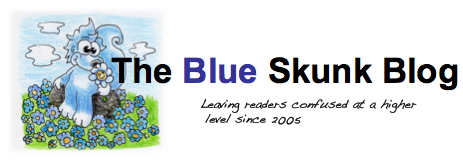Three days of student information system training (as a participant) has given me the opportunity to use Twitter for an extended amount of time. I really, really, really was hoping to get hooked and discover what all the educational excitement is about this tool.
But all I am left with are questions about being "Minnesota nice" in a micro-blogging environment and why anyone would use Twitter.
I freely admit that I am not the most social of creatures. I am uncomfortable in environments where I don't know the social norms, the accepted rules. So after feeling edgy for a couple days, I started doing a little digging about Twitiquette. (I thought I was clever in inventing the term, but others beat me to it.) Here's a very short list of sources:
Here are questions I am left with:
1. What is the proper content for a Twitter post? (Tweet, yes?) I find I really don't care much if people are eating breakfast or preparing for a presentation or scratching their butts. But then I don't expect others to care about whether I am doing those things either. Am I just insensitive? Should I care more about my fellow human beings? I did get very anxious when it sounded from entries that one person was posting and driving at the same time. I hope that was not true. Or that we are never on the road at the same time.
2. How much material from the "Shameless Self Promotion Department" is a part of this? I read an awful lot of pointing to "Hey looky what I just wrote" or "Hey looky, I am speaking at a conference" etc. What is very icky is feeling oneself slipping into this mode a well.
3. How do you keep from being perceived as rude and uncaring? OK, I was "following" about 60 people - names of people I have actually met or for whom I have some context. I had about 300 people following me. So here is the thing: if a person who is following me posts a message I won't see it since I am not following them. My non-response may well be interpreted as me being a snot. By not following people who are following me, I may be perceived as looking like I feel superior to them. Hey, and what about those jerks who I follow, but who don't follow me, and that never respond to my messages? Just who died and left them Twit king/queen? Somehow this seems like a medium designed to hurt feelings.
4. When do people actually log on to Twitter and what kinds of day jobs do people have who can do this during working hours? I would feel very guilty Twittering during my working hours (unless I am in a boring, time-wasting meeting anyway or marginally important training.) Maybe real Twits are a) all self-employed/unemployed, b) outstanding multi-taskers, c) have non traditional work hours, d) attend lots of meetings, or e) don't really care that they may not be giving their employer their all. (Did I just get in a lot of trouble?)
5. What is the ratio of information to time spent? Yes, I got a few really interesting links during my Twittering time, but compared to a lot of other things I could have been doing, there as an awful poor "signal to noise ratio" - even compared to the rest of the Web 2.0 world. Hmmm, this might be an analysis that would be interesting to compare time spent vs. amount discovered in different media.
6. Is there a lack of depth and conversational development? Suggestion such as:"Conversations that require more more than two @ replies should be moved over to a direct message." The limitation of 140 characters per message. The missed pieces of conversations. The non-linear, multiple conversations. Normal interruptions that leave one far behind in this synchronous form of communication. All these characteristics do little to help me increase the depth of my understanding on any topic.
My sense is that we are taking what is meant to be a recreation tool and attempting to shoe-horn it into educational purpose. We trying to pass a cocktail party off as a educational seminar. As Jakes writes in the blog posting mentioned:
"At its best, Twitter is a place to share a resource, a link to a new blog post, or an insight, and even a place to have a little fun. It’s a place that could be about learning. At its very worst, Twitter is a self-indulgent exercise in self-promotion and pettiness."
The funny thing is that I really like the people with whom I've interacted - in other situations and media.
And to be fair, I don't really suffer from a lack of socialization in my off-line world. I work in an office setting with a dozen other people. At home, the LWW is a great "socializer." She socializes when I am trying to read, trying to watch a movie, trying to brush my teeth, trying to get to sleep... ;-) But for those who may work or live in a more isolated environment or have less need for solitude, Twitter may be the best thing since sliced bread.
But I simply can't warm up to Twitter. I would have a difficult time recommending it as tool for improving one's Personal Learning Network.
The big understanding needs to be that it is OK to personally reject even a popular application if it doesn't fit.
Not everyone's a Twit.



Monty Python images from: http://www.jumpstation.ca/recroom/comedy/python/twit.html
 Saturday, May 3, 2008 at 08:53AM
Saturday, May 3, 2008 at 08:53AM 
 Doug Johnson | Comments Off |
Doug Johnson | Comments Off | 













